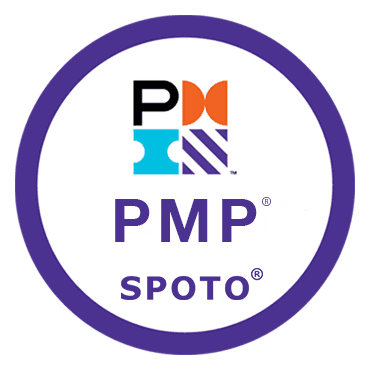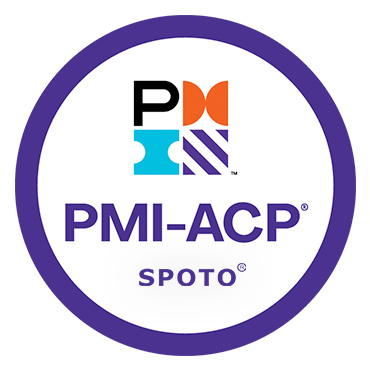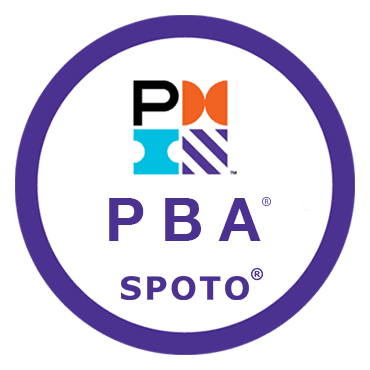Table of Contents
I. Executive Summary: The PMP Credential as a Strategic Career Investment
The Project Management Professional (PMP) credential, issued by the Project Management Institute (PMI), is a globally recognized certification that validates a professional’s leadership and expertise across various project management methodologies.1 While the user query focuses on the items to bring to the exam, a comprehensive analysis reveals that a candidate’s success is dependent on a holistic understanding of the entire certification journey, from the strategic decision to pursue the credential to the tactical, day-of-exam logistics. This report provides a definitive guide, demystifying the PMP ecosystem and equipping candidates with the knowledge required for success.
The PMP certification is not merely an academic exercise; it is an experience-based credential that represents a significant career investment. The examination is notably difficult, requiring an application of knowledge rather than rote memorization, and its rigor is reflected in unofficial estimates of a 40-50% first-time failure rate.2 The report demonstrates that PMI membership offers a substantial financial and resource-based advantage, and that meticulous planning of exam day logistics, including documentation and prohibited items, is as crucial as academic preparation.
II. The Strategic Imperative: Why the PMP Matters
A. The ROI of PMP Certification: Earning Potential and Career Trajectory
The PMP credential is a valuable asset that yields a substantial return on investment. The most direct financial benefit is a documented increase in salary. According to a PMI survey, professionals holding a PMP certification reported a median salary 33% higher than their non-certified counterparts across 21 countries.4 In the United States, this translates to a median salary increase of approximately $25,000.6 PMP-certified professionals in some international locations, such as Switzerland, can earn as much as $130,000 per year.7 The table below provides a breakdown of how PMP certification can influence earning potential.
Table 1: PMP Salary Benefits
| Experience Level | Annual Salary (Non-PMP) | Annual Salary (PMP) |
| Entry-Level | $60,000–$70,000 | N/A (requires experience) |
| Mid-Level | N/A | $80,000–$90,000 |
| Senior-Level | N/A | $105,000–$120,000 |
| Project Executive | N/A | $141,500–$196,500 |
| PMO Lead | N/A | $123,000–$180,000 |
| IT Project Manager | $120,000 (US Average) | $124,008 (US Average) |
| Health Care PM | $108,319 (US Average) | $125,567 (US Average) |
The value of the PMP credential extends beyond financial compensation. It enhances employability and can open doors to new job opportunities.8 PMI research indicates that project management-oriented careers in seven sectors are projected to grow by 33%.4 The skills validated by the PMP are universally applicable across a wide range of industries, including IT, healthcare, construction, and finance, making a PMP credential a portable asset that is valued by employers regardless of the specific sector.4 The certification serves as a pathway to higher-level roles such as Senior Network Security Architect, Cybersecurity Consultant, and Chief Information Security Officer (CISO).10 Furthermore, obtaining the certification establishes credibility with peers and employers and provides access to PMI’s global network of over 700,000 members.8
B. PMP vs. The World: An Experiential Credential
It is critical to distinguish the PMP credential from other certifications, such as the Certified Associate in Project Management (CAPM). The CAPM is an entry-level certification for those at the start of their project management career, testing fundamental knowledge and terminology from the PMBOK® Guide.11 In contrast, the PMP is designed for experienced professionals and is considered an “experience-based” exam.11 The PMP exam goes beyond rote memorization of the
PMBOK® Guide and focuses on assessing a candidate’s ability to lead, manage, and apply project management principles to real-world scenarios.12 A candidate’s prior CAPM certification can be a useful step on the path to PMP, as it fulfills the mandatory 35 hours of project management education required to sit for the PMP exam.15
III. The Path to the Exam: Preparation is Paramount
A. Navigating the Eligibility and Application Process
Before a candidate can sit for the PMP exam, they must meet specific eligibility requirements, which are based on their level of education and professional experience. The table below outlines these prerequisites:
Table 2: PMP Eligibility Requirements
| Educational Background | Project Management Experience | Project Management Education |
| Secondary Degree (High school diploma, associate’s degree, or global equivalent) | Minimum 60 months of unique, non-overlapping professional project management experience within the last eight years. | 35 hours of formal project management education or CAPM® certification. |
| Four-Year Degree (Bachelor’s degree or global equivalent) | Minimum 36 months of unique, non-overlapping professional project management experience within the last eight years. | 35 hours of formal project management education or CAPM® certification. |
| Bachelor’s or Post-Graduate Degree from a GAC accredited program | Minimum 24 months of unique, non-overlapping professional project management experience within the last eight years. | 35 hours of formal project management education or CAPM® certification. |
The application process is completed online through the PMI website.17 The most common reasons for a delayed or rejected application are incomplete or inaccurate information, particularly with dates and hours of experience or education.17 A small percentage of applications are randomly selected for an audit.17 During an audit, candidates must provide documentation to verify their stated experience and training. A critical step in the process is ensuring all submitted information is accurate from the start to avoid delays and complications.17
Another important consideration is the cost. The PMP certification cost varies based on a candidate’s PMI membership status. The exam fee is $405 for PMI members and $555 for non-members.1 For new members, a one-time $10 application fee is added to the annual membership fee of $154, for a first-year total of $164.21 While membership is optional, it is financially prudent to become a member before paying for the exam. The membership and discounted exam fee combined ($164 + $405 = $569) is only slightly more than the non-member exam fee alone ($555).21 This financial benefit is compounded by the fact that PMI members receive a free digital copy of the
PMBOK® Guide and other valuable resources.22
B. Developing a Winning Study Strategy
The PMP exam is a test of applied knowledge, not rote memorization. The exam’s low pass rate, unofficially estimated to be between 40% and 50% for first-time test takers, underscores the importance of a structured and comprehensive study strategy.2 Experts recommend a study duration of two to six months, dedicating an average of 100 to 200 hours of preparation.3 The length of time a candidate needs to study is directly dependent on their existing project management experience and their comfort with various methodologies.3
The PMP exam is a scenario-based test that assesses a candidate’s ability to think “like PMI”.3 It presents situational questions that often have multiple seemingly correct answers, and the candidate must choose the most optimal one according to PMI’s principles.3 The traditional approach of reading the
PMBOK® Guide cover to cover is generally considered insufficient.30 A more effective preparation strategy involves using a combination of resources, including the
Agile Practice Guide, and, most critically, a significant number of practice exams that simulate the real test environment.24
PMI does not release an official passing score or failure rate.3 This policy compels candidates to focus on mastering the material rather than aiming for a minimum score. Consequently, practice test providers have established a benchmark of scoring 75% to 80% on mock exams as a reliable indicator of readiness.24 This suggests that PMI’s approach to scoring creates a market-driven standard for success, and aspiring professionals should use this benchmark to gauge their preparedness.
IV. Decoding the Exam: Format, Content, and Scoring
A. The Anatomy of the Exam
The PMP exam is a rigorous mental endurance test. It consists of 180 questions to be completed in a total of 230 minutes.1 This gives a candidate an average of just over one minute per question 3, which can be mentally fatiguing over the nearly four-hour duration.3 Of the 180 questions, only 175 are scored; the other five are unscored “pretest” questions used to evaluate content for future exams.1 The exam is available in 16 languages.1
The exam content is structured around three performance domains, with a varying percentage weight for each:
- Process (50%): The technical aspects of managing a project, including planning, managing communications, assessing risks, and handling changes.36
- People (42%): The soft skills and activities associated with leading a project team, such as managing conflict, building a team, and collaborating with stakeholders.36
- Business Environment (8%): The relationship between projects and organizational strategy, including managing compliance, evaluating benefits, and addressing external business changes.36
Approximately half of the questions are based on predictive project management approaches, while the other half focus on agile or hybrid methodologies.36 While the majority of questions are situational, other question types include knowledge-based, formula-based, and interpretive questions. Drag-and-drop and multiple-selection questions are also common.28
B. Scoring and Results
The PMP exam does not have a fixed passing score.33 Instead, passing is determined by a psychometric analysis that takes into account the difficulty of the questions a candidate answers correctly.3 This means that two candidates with the same number of correct answers may have different outcomes. This scoring method reinforces the need for comprehensive preparation. A candidate will receive a pass or fail result immediately upon completing the exam.3
V. The PMP Exam Day: Logistics and Protocol
Meticulous planning of exam day logistics is as crucial as academic preparation. The rules regarding documentation, personal items, and conduct are strictly enforced, and a failure to comply can result in the forfeiture of the exam fee and an attempt.40
A. The Essential Checklist: What to Bring
The single most important item to bring to a test center is a valid, government-issued photo ID.42 The ID must be original (no photocopies), unexpired, and contain a recognizable photo and a signature.44 The name on the ID must exactly match the name used on the PMI application and exam registration.43 A secondary form of ID may be required if the primary ID lacks a photo or signature.42 It is also recommended to bring a printed copy of the exam confirmation email for a smoother check-in process.43
B. Inside the Test Center: Rules and Provided Tools
Upon arrival, candidates should be prepared to go through a rigorous check-in process that may include a metal detector and a signature verification.41 All personal belongings, including cell phones, watches, wallets, and bags, must be stored in a provided locker.41 Access to these items is prohibited during the exam itself, with the exception of permitted breaks.51
The test center will provide all necessary tools for the exam, so candidates are prohibited from bringing their own. These provided materials include an on-screen calculator, a note board or scratch paper, and pencils or dry-erase markers.39 Earplugs may also be available upon request.35 To ensure comfort during the long exam, it is recommended that candidates dress in comfortable, layered clothing to adapt to unpredictable room temperatures.40
C. The Online Proctored Experience: A Different Set of Rules
For candidates taking the exam online, the logistical requirements are different. The proctor will verify a candidate’s identity via webcam and will conduct a virtual scan of the testing environment.54 The workspace must be clear of all electronics, clutter, and paper materials.43 The computer itself must meet specific system requirements, and it is strongly recommended that a candidate use a personal computer with a wired internet connection to avoid issues with firewalls, VPNs, or network instability.55
A key difference in the online exam is the use of a virtual whiteboard in place of a physical scratchpad.43 This tool allows for both text entry and free-form drawing using a mouse or trackpad.59 A common strategy for candidates is to perform a “brain dump” at the beginning of the exam, which involves quickly writing down key formulas, concepts, and mnemonics on this virtual whiteboard to aid recall and reduce pre-exam stress.60
A significant point of confusion regarding the exam concerns break policies. While some older or more general sources state there are no scheduled breaks and that the clock does not stop for personal breaks 34, modern test-taker experiences confirm that the exam features two optional 10-minute breaks.34 The timer pauses for each of these breaks, which are available after a candidate completes and submits the first 60 questions and the second 60 questions. This is a critical logistical detail that candidates should be aware of, as using these breaks for a quick physical and mental reset can be instrumental in managing the exam’s duration.34
VI. Conclusion: Final Recommendations for Success
The PMP certification is a rigorous yet highly valuable credential that demands a structured and comprehensive approach to preparation. The final synthesis of all the data and findings points to a clear conclusion: a candidate’s success is a direct result of their ability to move from high-level strategic planning to the meticulous execution of tactical details. The PMP exam is a test of a candidate’s readiness to apply project management principles in a real-world context, a challenge that can only be met with thorough preparation.
Based on the analysis, a final, consolidated seven-day countdown checklist is recommended to ensure a successful exam day:
- 7 Days Before: Rerun the system compatibility check for online exams or do a practice drive to the test center. Confirm that all required ID documents are valid and that the name on the ID exactly matches the name on the exam registration.
- 4 Days Before: Take at least one full-length, timed practice exam to build stamina and identify any last-minute weak areas. Aim for a score of 75% to 80% to feel confident in your readiness.
- 3 Days Before: Use the practice exam results to target areas for final review. Focus on active studying, such as solving situational questions, rather than passive methods like rereading the PMBOK® Guide.
- 2 Days Before: Practice the brain dump technique. Write down key formulas, concepts, and mnemonics to be able to do it quickly and efficiently at the start of the exam.
- 1 Day Before: Pack the essential items: the required government-issued ID and the exam confirmation email. Double-check that all prohibited items are left at home. Plan a light, balanced meal and get a full eight hours of sleep.35 Avoid last-minute cramming.
- Exam Day: Arrive at the test center at least 30 minutes early to allow for check-in procedures. Once inside, use the provided note board or virtual whiteboard for the brain dump. Use the two optional 10-minute breaks to stretch, hydrate, and reset. Manage time like a project manager, aiming to spend just over one minute per question.
- Final Word: The PMP exam is difficult, but it is not a trick.3 It is a fair assessment designed to ensure that certified professionals have the necessary skills to lead and manage projects effectively. With a strategic mindset, disciplined preparation, and attention to detail, a candidate can confidently walk into the testing environment knowing they have done everything possible to achieve success.
reference links:
Project Management Professional (PMP)® Certification | PMI
What Happens if You Fail the PMP Exam? (PMI Failure Rate) [2025]
Is it Hard to Get the PMP Certification in 2025? – Project Management Academy
Benefits of PMP Certification & Training in 2025 – Project Management Academy
Will PMP help me make more money? – PM PrepCast Forum
Project Manager Salary: Your 2025 Guide – Coursera
PMP Salary Guide 2024: Earnings, Opportunities & Comparisons – PM Training School
The Benefits of a PMP Certification – University of Silicon Valley
What is the difference between the CAPM® and PMP® Exam? – The PM PrepCast
CAPM vs. PMP: Which Is Best for You? – Coursera
What’s the Difference between PMP & CAPM?
PMP vs CAPM: PMI’s two leading certifications. – YouTube
CAPM vs. PMP Certification | Purdue Project Management
PMP Certification Requirements 2025: Eligibility, Process, & Exam Guide
How to Get a PMP Certification: An Overview – Coursera
How to Successfully Complete Your PMP Application – Project Management Academy
How Do I Register for the PMP Exam? | The Persimmon Group
PMP FAQ Development – PMO ADVISORY
How Much Does The PMP Exam Cost in 2025?
What Is The PMI Membership Cost In 2025 – Gururo
PMP Certification Cost: Breaking Down the Cost in 2025 – KnowledgeHut
PMP Exam Prep – PMIWhat is the PMP exam failure rate?
Preparing for Your PMP Exam: Essential Tips for Success – Post University
How Hard Is the PMP Exam and How to Crack in 2025? – KnowledgeHut
PMP Exam Structure and Breaks: Clarifications Needed! – Reddit
Top 12 Helpful PMP Exam Day Tips in 2025 – KnowledgeHut
Project Management Professional (PMP)® Examination Content Outline – January 2021 – PMI
Project Management Institute Certification Handbook – PMI
PMP Exam: 3 Key Tips For Onsite Success At Pearson VUE – rosemet
How to Decide Where to Take the PMP® Exam – PMI
Compilation of Tips for Setup of Online PMP Exam – Reddit
OnVUE Whiteboard // Pearson VUE









Comments